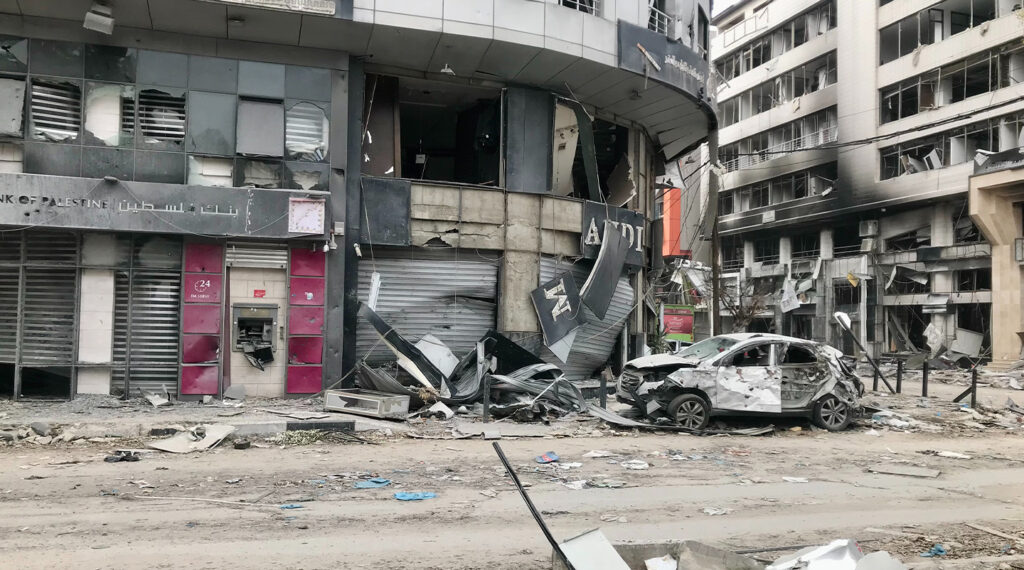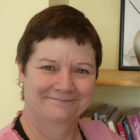How can philanthropy contribute to a safe, healthy, and just world?

‘We live in an age of war, and this is a perilous moment for the world’ is the conclusion of a recent New Statesman editorial.[1] Already, one-fifth of the world’s surface is covered by violent conflict, many of which are below the media radar.
In this moment of danger, some are asking ‘where is philanthropy?’ Writing in Alliance Magazine on 16 October, editor Charles Keidan commented on the distressing scenes from Israel and Gaza and suggested that ‘the philanthropic world seems eerily silent, paralysed by inaction.’[2]
Since then, hundreds of foundations, institutional funders, individual donors and philanthropy professionals in the U.S. and Europe have signed a joint letter demanding an immediate ceasefire. In response, Charles Keidan tweeted that these statements show progressive philanthropy ‘finding its voice, albeit via the intermediary bodies and networks it funds and enables rather than directly (with some exceptions).’
This shows that philanthropy can act when it needs to. Yet, at the same time, philanthropy has not always geared itself up to make positive contributions in situations of conflict, and certainly, has not brought all its resources – financial and connective – to bear on the current challenges. Shafi Musaddique, news editor at Alliance magazine, has described the ‘decades long failure by philanthropy to bring divided groups together.’[3] A survey conducted by Candid and Centris in 2019/20 found that only 1 per cent of philanthropic resources was devoted to conflict transformation, and even this tiny proportion appears to be diminishing. People active in peacebuilding say that funders are cutting back on resources, leading to a crisis in the field.
Given recent events, it is time for philanthropy to review its work in this area. As Charles Keidan points out, philanthropy has the freedom and resources to chart a course – paved with grants, programmes, and partnerships– towards the love of humanity everywhere. A convening organised by the Social Change Initiative (SCI) is an opportunity to build such a programme based on philanthropy’s core strengths. The meeting will be held in Belfast from the 5th to 7th February 2024. This convening is being co-sponsored by ARIADNE, Community Foundation for Northern Ireland, Community Foundation for Ireland and the Joseph Rowntree Charitable Trust. Using the backdrop of 25 years of the Good Friday Agreement it will identify and share learning from examples of donor supported peacebuilding drawn from various conflict situations.
Alongside the convening, the Robert Bosch Foundation, PeaceNexus Foundation, Humanity United, Peace Direct, Peace and Security Funders Group, Philanthropy for Peace and Social Justice, Foundations for Peace and others are supporting a new survey of the field to investigate what kind of role that philanthropy could play and how it could take effective action in this unstable world. The survey will highlight and learn from those positive examples of where philanthropy has made, and is making, a positive contribution to peacebuilding and addressing toxic polarisation in a variety of global settings.
Out of this, we hope that the event will encourage new momentum to address sources of inequality and exclusion that are so often the root causes of violent conflict, and to develop alternative strategies to counter armed conflict and achieve progressive change. This is a call to action for philanthropy to invest resources, both financial and non-financial, in a more peaceful and mutually understanding world.
If you are interested in the convening, please get in touch with Avila Kilmurray. If you are interested in participating in the survey, please get in touch with Barry Knight. Fill out the survey here
[1] New Statesman 20-26 October 2023
[2] https://www.alliancemagazine.org/blog/progressive-philanthropy-is-missing-in-action-again-on-israel-palestine/
[3] https://www.alliancemagazine.org/blog/israel-palestine-conflict-charities-and-ngos-step-in-philanthropy-not-so-much/
Authors


